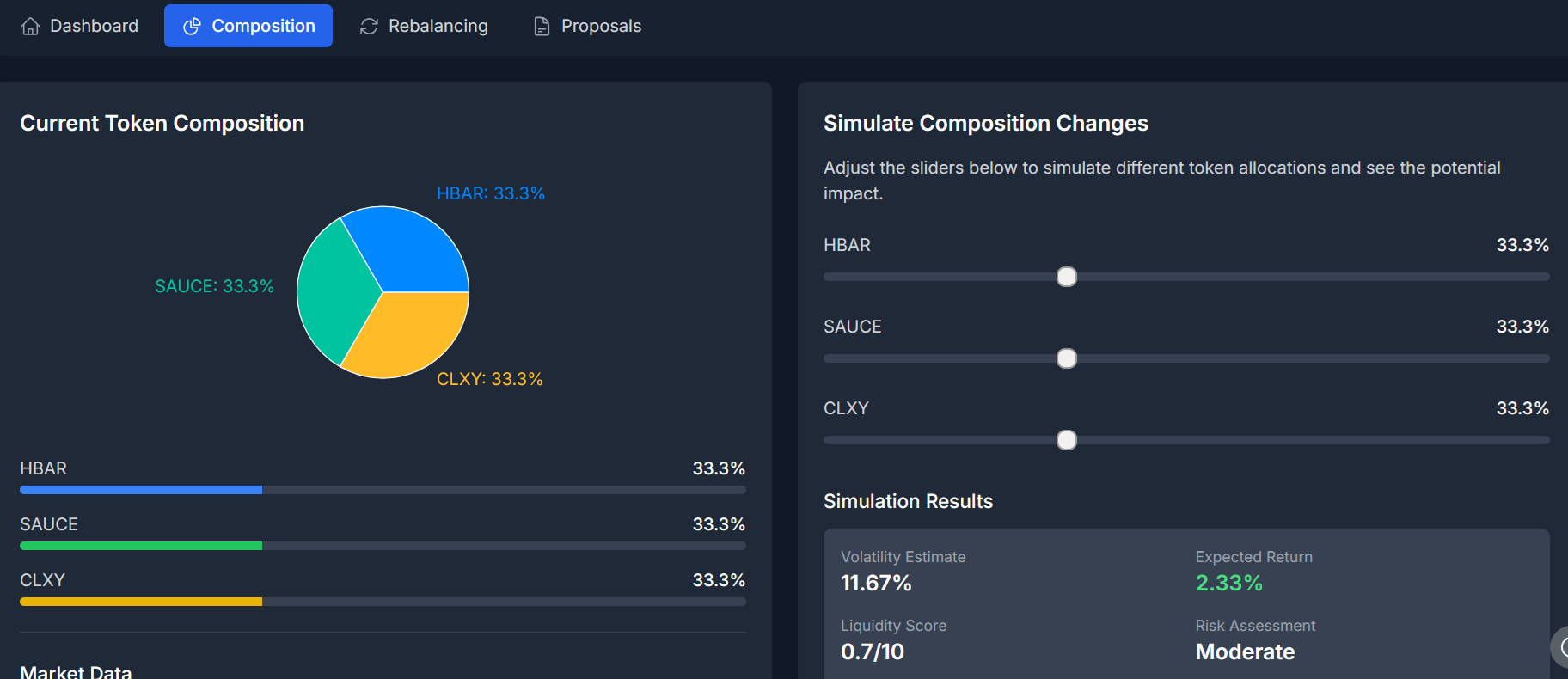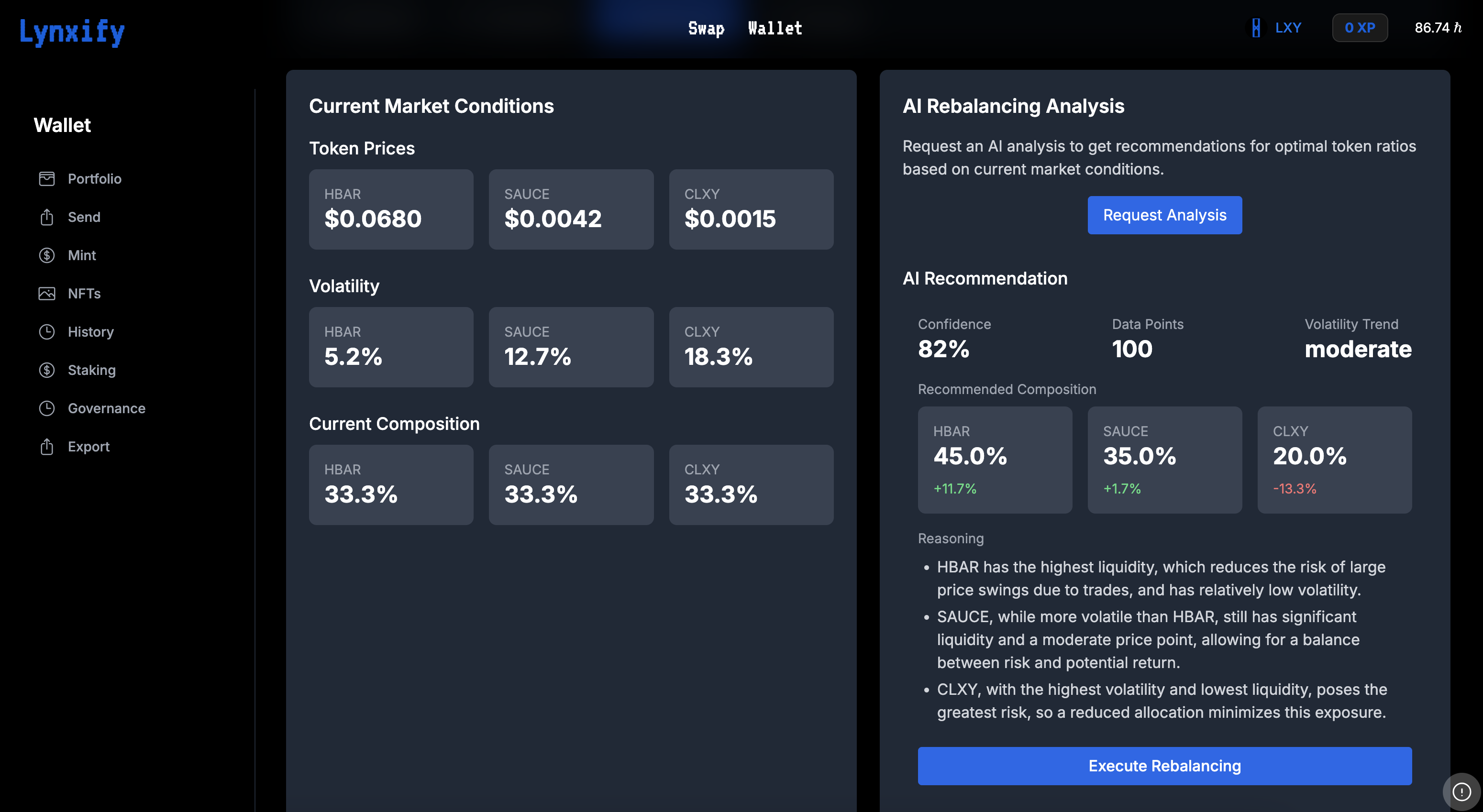HederaCon: An Exploration of AI Re-Balancing with HCS
An active and functioning DAO is critical to the operation of any tokenized index. For this reason, LYNX is different from any similar token indices. For one, we've leveraged the advanced tools on the Hedera blockchain to level up automation and recommendation for our community. Our reasoning is that rather than focusing on only increasing participation, we also need to make that participation painless.
DAO Dashboard Prototype
Our initial prototype for the LYNX DAO dashboard focused on demonstrating AI integration with HCS in order to provide insights and tools for re-balancing. In addition, we wanted to make the voting process more intuitive and accessible. Rather than the traditional approach of using voting proposals, we wanted to give our members the dials to the contract itself.
 The main dashboard view showing token holdings, active proposals, and governance statistics.
The main dashboard view showing token holdings, active proposals, and governance statistics.
 Composition dashboard with simulation toggles for volatility and liquidity assessment.
Composition dashboard with simulation toggles for volatility and liquidity assessment.
 Interactive view of proposed index rebalancing using HCS and OpenAI.
Interactive view of proposed index rebalancing using HCS and OpenAI.
Introducing the LYNX DAO Dashboard
Based on our learnings from the prototype, we propose a dashboard of dials to determine consensus based on the current settings of the majority of members at the time of execution. This addresses the issue of participation for the most critical decisions by allowing for passive participation. By utilizing Hedera Consensus Service along with scheduled transactions, the user need only apply their dashboard settings before the scheduled execution period. Our focus was on making governance participation not just easier, but more meaningful for token holders by allowing these decisions to automatically execute on the minting contract.
The final dashboard incorporates real-time data visualization and AI-powered recommendations that help users make informed decisions without requiring deep technical knowledge of the underlying protocols.
 Utilizing HCS with long-term scheduled transactions and AI assessment.
Utilizing HCS with long-term scheduled transactions and AI assessment.